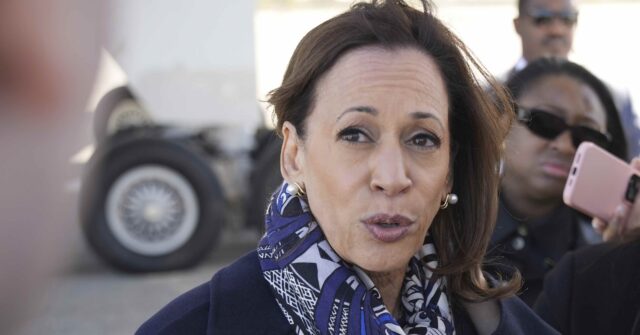In a recent interview with Fox News’ Bret Baier, Vice President Kamala Harris faced tough questions regarding the Biden-Harris administration’s handling of Iran and its financial dealings. During the 27-minute exchange on “Special Report,” Harris was notably evasive, often diverting the conversation to criticize former President Donald Trump rather than directly addressing concerns about Iran’s access to billions of dollars. Baier specifically asked why the current administration had relaxed sanctions on Iran, resulting in significant financial inflow for the country, particularly in oil revenues.
Harris attempted to shift the focus away from the present situation, instead redirecting the conversation to Trump’s decision to withdraw from the Iran nuclear deal. While she accurately pointed out that Trump’s exit from the agreement led to the release of previously restrained funds for Iran, she failed to acknowledge that this deal, established under President Barack Obama, had initially provided Iran with billions in sanctions relief. Critics argue that this arrangement not only facilitated Iran’s access to funding but also permitted the nation to advance its nuclear capabilities over time without adequate constraints on its missile development initiatives.
The complexity of U.S.-Iran relations is accentuated by contrasting perspectives on how to approach the regime. Harris highlighted past issues, such as Trump’s contentious remarks about American military personnel injured in an Iranian missile attack, but she neglected to contextualize these events. Notably, the missile strike referenced occurred following the U.S. operation that killed Iranian General Qasem Soleimani—an action that Harris and then-candidate Joe Biden had opposed on the grounds that it might incite further conflict in the region.
Throughout the dialogue, as Baier attempted to steer the conversation back to the current administration’s policies, Harris frequently spoke over him, addressing unrelated issues and repeating talking points from her previous campaign. This strategy included referencing debunked narratives about Trump that detracted from the substance of the questions posed to her. Her refusal to provide a straightforward explanation regarding the administration’s facilitation of Iran’s financial capabilities raised eyebrows, particularly in light of ongoing geopolitical tensions.
The significance of the Biden-Harris administration’s approach to Iran cannot be overstated, as myriad factors affect international relations and national security. Critics argue that allowing Iran greater financial freedom undermines efforts to restrain the regime’s ambitions, particularly as Iran is often described as a principal adversary to U.S. interests in the Middle East. The administration’s strategy in dealing with Iran is pivotal, especially given the implications of allowing access to funds that could potentially be used for hostile activities or to further develop weapons capabilities.
Ultimately, the interview underscored the challenges President Biden and Vice President Harris face in addressing complex foreign policy issues while maintaining a cohesive narrative related to their predecessor’s policies. As criticisms continue to emerge regarding the administration’s handling of international relations, the ability of leaders to confront these questions directly remains crucial to public understanding and confidence in their foreign policy strategies.

